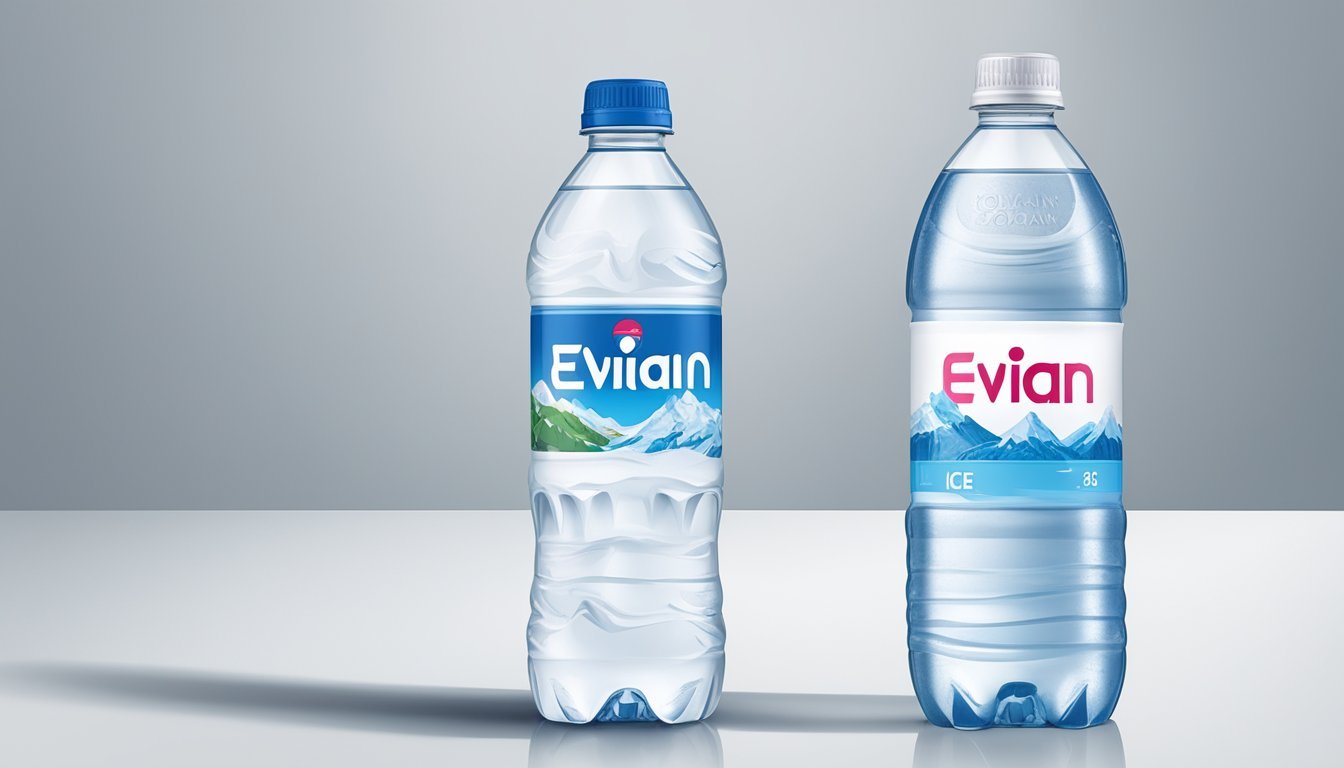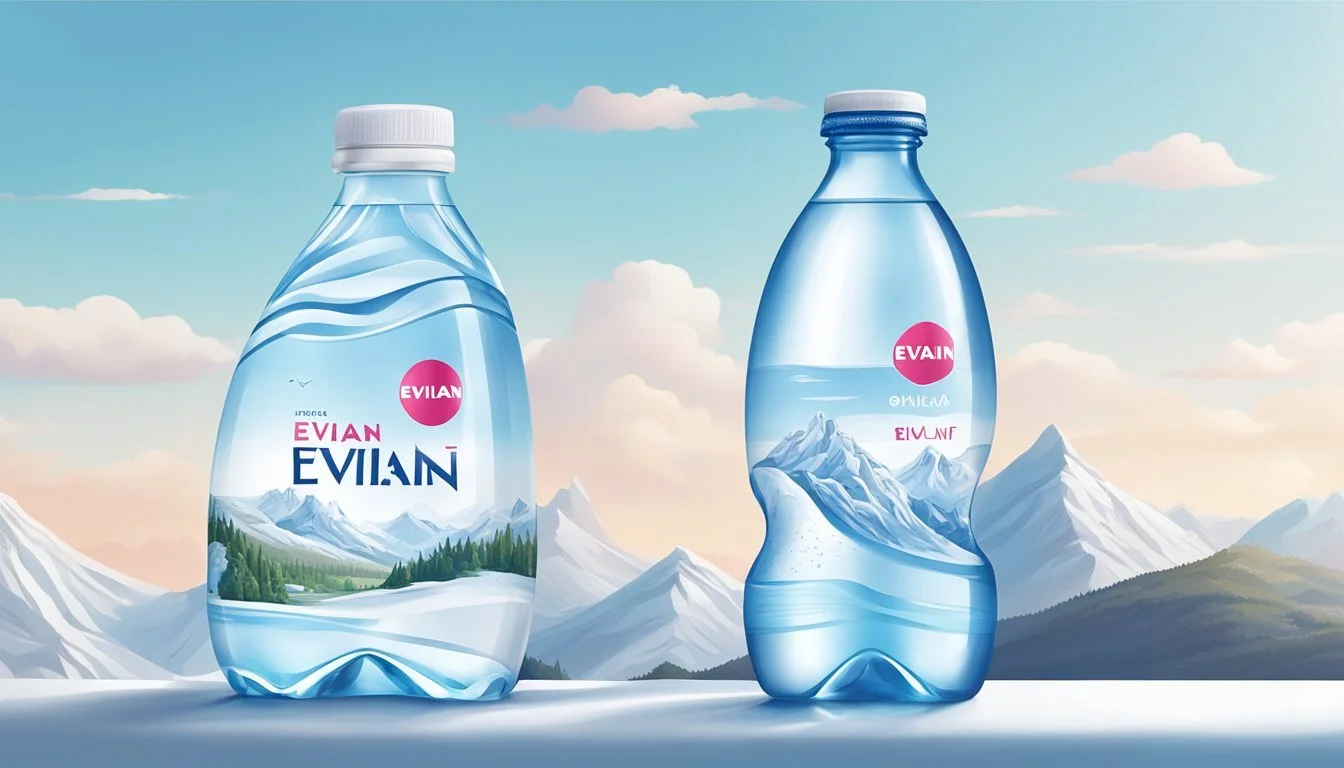Evian vs. Ice Mountain
A Comparative Analysis of Bottled Water Quality
When examining bottled water brands, Evian and Ice Mountain stand out for their unique sourcing and taste profiles. Evian, sourced from the French Alps, is known for its naturally occurring electrolytes and minerals that contribute to the characteristic taste and purported health benefits. On the other hand, Ice Mountain, sourced from springs in the United States, is often noted for its affordability and availability, providing a clean taste without a heavy impact on the consumer's wallet.
The choice between Evian and Ice Mountain can depend on a variety of factors including personal taste preference, budget, and the importance of the water's origin. While Evian is associated with a certain posh image and is often seen as a premium product within the bottled water market, Ice Mountain is perceived as a practical choice that delivers pure water at a more accessible price point.
Consumers might also weigh the environmental implications of their purchasing decisions. Both brands have taken steps towards sustainability, but the impact of bottling and shipping water across the globe is a consideration for environmentally conscious buyers. Thus, the debate encompasses not only the taste and quality of the water but also the broader consequences of choosing one over the other.
Industry Overview
The bottled water industry has experienced significant growth, with an array of brands catering to consumers' increasing demand for convenience and perceived quality. Two notable brands, Evian and Ice Mountain, exemplify the rising consumer preference for bottled waters, each with distinct sourcing and marketing approaches.
Evolution of Bottled Water
Bottled water has dramatically evolved from a luxury commodity to an everyday item. Initially seen as a product for the elite or for those in areas without access to safe drinking water, it has become a staple in consumer diets globally. This change can be seen in the diversity of water brands such as Fiji, Voss, and SmartWater, which position themselves as premium products, and others like Poland Spring, Dasani, and Aquafina that are widely accessible, catering to a broader market. The International Bottled Water Association (IBWA) has been instrumental in promoting bottled water as a healthy lifestyle choice, further influencing consumer habits.
Key Players in the Market
The international market for bottled water brands is diverse, with several key players dominating the scene. Nestle, owning brands including Pure Life and Perrier, stands out as a major entity, while Coca-Cola and PepsiCo have also marked their territory with Dasani and Aquafina, respectively. On the premium side, Evian continues to maintain its position as a symbol of luxury, with its natural spring water sourced from the French Alps. Ice Mountain, sourced from springs in the United States, offers a regional choice for consumers. These brands vie for market share by highlighting the purity, taste, and convenience of their products, while also addressing environmental concerns associated with plastic bottles.
Health and Hydration
The pursuit of hydration and health often leads consumers to choose bottled water, expecting purity and beneficial minerals. Evian and Ice Mountain, each with distinct sources and treatments, offer different profiles for hydration and health benefits.
Hydration and Health Benefits
Evian positions itself as a premium spring water, sourced from the French Alps, and is naturally endowed with electrolytes and minerals. Electrolytes such as magnesium and calcium are crucial for maintaining hydration and various body functions. Ice Mountain, mainly sourced from groundwater and spring sources in the Midwest, also provides a source of hydration but with a different mineral composition. The presence of these naturally occurring minerals can enhance taste and potentially offer health benefits compared to purified water, which lacks these minerals.
Comparison of Contaminants
Lead: Neither Evian nor Ice Mountain typically report lead in their water products.
Heavy Metals: There is generally minimal presence of heavy metals in both brands, often below detection limits.
Arsenic: Levels of arsenic in Evian and Ice Mountain must adhere to strict regulatory standards, typically reported as undetectable or well below danger levels.
PFAS Chemicals: Both companies conduct regular testing for contaminants such as PFAS chemicals; these man-made substances are harmful in large quantities but are heavily regulated within bottled water products.
Water Quality and Safety
Evian goes through a years-long natural filtration process in the heart of the Alps, which enhances its purity and composition. The brand prides itself on quality, and its products meet stringent safety standards internationally. Ice Mountain, processed and bottled in the United States, must comply with the safety standards set by the FDA and the EPA for local tap water. This includes regular testing and monitoring to ensure the bottled water is free from harmful levels of contaminants like mercury and is safe for consumption. Both brands strive to mitigate risks of corporate malfeasance through transparency and adherence to quality and safety guidelines.
Sourcing and Purification
Sourcing and purification are critical components determining the taste and quality of bottled water. The following subsections explore the precise origins and rigorous purification methods of Evian and Ice Mountain water brands.
Sources of Bottled Water
Evian derives its water from the remote French Alps, where melting snow and rainwater slowly filter through glacial sand and absorb essential minerals along the journey. The result is naturally occurring mineral water, renowned for its balanced mineral content and purity. The source, protected by geological layers, ensures a sustainable flow of water.
Ice Mountain, on the other hand, sources its water from underground springs in the United States, mainly in states like Michigan. These springs are replenished with rainwater and snowmelt that filters through mineral-rich soil and rock formations. This type of spring water is often praised for its fresh taste and natural mineralization.
Purification Processes
To ensure safety and consistency, bottled waters undergo purification, but processes vary significantly based on the source and intended quality.
Evian undergoes a natural filtration journey that takes over 15 years, ending in an aquifer deep within the mountains. No mechanical filtering or chemical treatment is needed due to this extensive natural process.
The Ice Mountain brand, while starting with spring water, employs a combination of microfiltration and reverse osmosis technologies to remove impurities. Moreover, the spring water may be further treated with UV light, a non-chemical disinfection method, to ensure safety and quality. Some of their offerings are labeled as purified water, which implies additional processing to achieve the desired mineral content and pH level.
Taste and Consumers' Preferences
When comparing Evian and Ice Mountain bottled waters, taste is a primary differentiator that shapes consumers' preferences.
Taste Profiles
Evian: Sourced from the French Alps, Evian is known for its naturally occurring electrolytes and minerals, giving it a distinctive, smooth taste that is often described as refreshing. Its neutral pH level contributes to its well-balanced flavor profile which lacks any pronounced aftertaste.
Ice Mountain: Mainly sourced from springs in the Midwest, Ice Mountain has a reputation for a clean, crisp taste. It often has a slightly higher mineral content compared to other bottled waters, though still with a relatively neutral pH, resulting in a taste that some consumers find more robust and fuller.
Consumers tend to have varied preferences between these two brands. Those favoring a smooth, balanced flavor that pairs well with food often gravitate towards Evian, while those preferring a crisper mouthfeel might prefer Ice Mountain.




